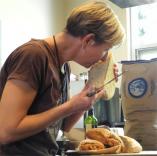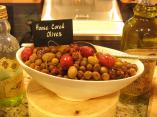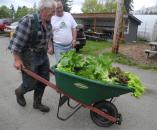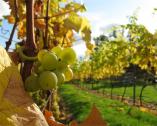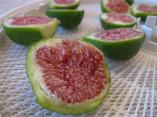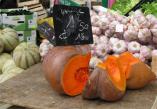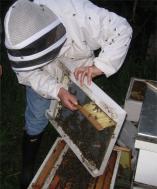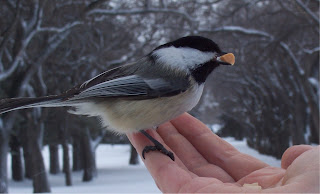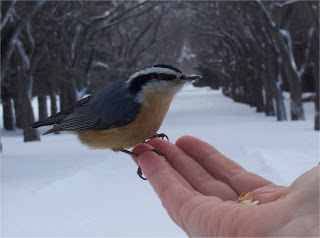By now I am sure that you are all well into your own celebration of this the International Year of the Potato, but in case you haven’t got everything in place, here’s a handy list of world-wide events you can still catch. What to do after that? Well, it can be a busy year if you let it.
Europain 2008 is coming up 29 March-2 April; sounds uncomfortable but delicious. Maybe closer to home (for some of us) it would be worth checking out the Seattle Cheese Festival May 16-18. How about joining the Nicosians for their annual Cherry Festival in June? Or there’s also the Prague Food Festival June 20-26. Stavanger, Norway holds its annual Garlic Festival in April, and this year is also hosting the real life rather weird cooking competition, the Bocuse d’Or Europe July 1-2: real life meets reality television. July 4-13 it’s time for the Ledbury Poetry Festival, which has spawned a poetry trail in a Herefordshire Orchard.
One could then return to Canada and attend the South Cariboo Garlic Festival August 16-17. After that, go Really Wild in Wales 30-31 August, and then down to Chichester for the Totally Tomato Show Sept 6-7, and back up to Ludlow Sept 12-14 (unless you are going to the excellent Oxford Symposium on Food & Cookery) and across to Galway to celebrate some oysters September 25-28. Or round off the month with a visit to Sweden to catch Öland’s Harvest Festival 2008 September 25-28 and the Kivik Apple Market, September 29-30.
After that, you’ll want a little rest before Chocaday celebrations on October 12, and then make your plans for Eurochocolate 2008 in Perugia October 18-26, which should give you time to nip up to Torino to catch Salone del Gusto and Terra Madre which run concurrently from October 23 to 27. Then on to Austria for Salon Suisse des Gouts et Terroirs October 29-November 2. November 14-15 it’s the Clayoquot Oyster Festival in Tofino. On November 24 there’ll be tears before bedtime if you miss the Zibelemärit, the onion market in Berne.
In other news, giving some support to world-wide moves against bottled water, Venetians are giving up mineral water for Lent, which I guess won’t win them any friends in the Global Bottled Water Congress. Won’t bother the hibernating cod or dieting teenagers who’ve just been told again they can’t skip breakfast.
